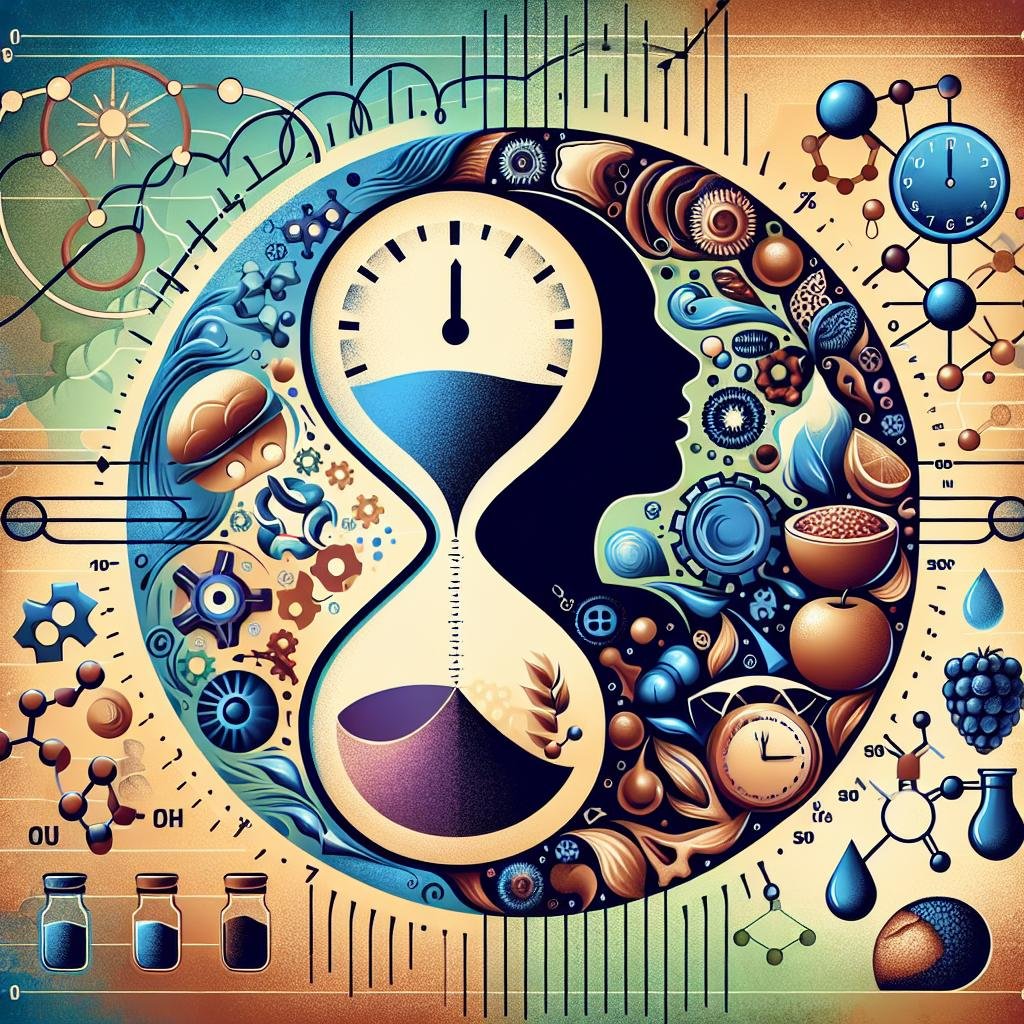As the sun dips below the horizon, casting a warm glow over dinner tables worldwide, a quiet revolution is unfolding in the realm of nutrition. Enter the practice of intermittent fasting—a time-honored approach to eating that has gained modern acclaim not only for its potential health benefits but also for its intriguing influence on hunger and appetite control. This article delves into the nuanced interplay between this eating pattern and our innate appetite mechanisms, exploring how periods of fasting can recalibrate our relationship with food. Whether you’re a seasoned practitioner or a curious skeptic, join us as we uncover the science behind intermittent fasting and its fascinating effects on our hunger cues and cravings, illuminating pathways to healthier eating habits and a deeper understanding of our bodies’ signals.
Understanding Hunger Signals and the Science of Intermittent Fasting
Understanding hunger is essential when exploring the effects of intermittent fasting. During fasting periods, the body undergoes various physiological changes, primarily driven by hormones such as ghrelin and leptin. Ghrelin, often referred to as the ”hunger hormone,” increases prior to meals and decreases after eating. Conversely, leptin, produced by fat cells, helps regulate energy balance by inhibiting hunger. Intermittent fasting can lead to a reduction in ghrelin levels over time, potentially altering the frequency and intensity of hunger signals. This can create a more harmonious balance in how we perceive our appetite, making it easier to adhere to fasting schedules without overwhelming cravings disrupting our daily lives.
Moreover, the timing of intake plays a critical role in appetite management. Intermittent fasting encourages eating within a specific window, often allowing for larger meals that are satisfying and nutrient-dense. This approach not only provides adequate nutrition, but also helps stabilize blood sugar levels, which can impact how hungry we feel. When we look closer at the dynamics of intermittent fasting, it becomes apparent that many individuals report feeling less hungry overall despite fewer eating opportunities. This shift can stem from improved metabolic efficiency, where the body becomes adept at utilizing stored energy. understanding these complex interactions helps illuminate why intermittent fasting can be an effective strategy for hunger and appetite control.

The Role of Hormones in Appetite Regulation During Fasting
During fasting, the intricate interplay of hormones plays a critical role in managing appetite and hunger signals. Hormones such as ghrelin, often referred to as the “hunger hormone,” surge during periods of fasting. This hormone signals the brain to stimulate appetite and increase food intake when the body believes it needs nourishment. On the other hand, the levels of leptin, the hormone responsible for signaling satiety, decrease when fasting, which may temporarily enhance the sensation of hunger. Understanding these hormonal changes is essential for anyone exploring intermittent fasting as a strategy for weight management or overall health improvement.
Additionally, the role of insulin cannot be overlooked. During fasting periods, insulin levels decrease, which facilitates fat breakdown for energy and promotes a state of fat burning rather than fat storage. This alteration can lead to a more balanced hunger response in the long term. Other hormones, including peptide YY and cholecystokinin, also come into play, contributing to feelings of fullness and reducing appetite following a meal. The complex relationship between these hormones illustrates why many individuals may experience varying levels of hunger during different fasting intervals, making it crucial to listen to one’s body while navigating appetite control.

Practical Strategies for Managing Cravings and Enhancing Satiety
Effectively managing cravings and enhancing satiety during intermittent fasting can be achieved through a few practical strategies. One key approach is to stay hydrated; drinking water, herbal teas, or black coffee during fasting periods not only helps stave off hunger but also supports overall wellness. Additionally, incorporating nutrient-dense foods during eating windows can boost satiety levels. Focus on whole foods that are rich in fiber and protein, such as:
- Leafy greens
- Legumes
- Nuts and seeds
- Lean meats and fish
Another effective strategy is to practice mindful eating. This involves paying full attention to the experience of eating and appreciating the flavors and textures of food. Taking your time to eat and savor each bite can promote feelings of fullness and help you recognize your body’s hunger cues. It may also be beneficial to schedule meals and snacks thoughtfully within your eating window. Consider the following table to optimize your eating schedule:
| Meal Time | Suggested Foods |
|---|---|
| 12:00 PM | Grilled chicken salad with quinoa |
| 3:00 PM | Apple slices with almond butter |
| 6:00 PM | Baked salmon with roasted vegetables |
| 8:00 PM | Greek yogurt with berries |

Long-Term Effects of Intermittent Fasting on Eating Behaviors and Weight Management
The reveal a dynamic interplay between metabolic regulation and psychological adaptation. Research indicates that individuals who engage in this eating pattern often experience significant shifts in their desire for food and overall eating habits. Over time, many report a reduction in cravings and a heightened awareness of their body’s hunger signals, leading to more mindful consumption. This transformation can foster a healthier relationship with food, encouraging people to prioritize nutritional value over sheer quantity. Responsive eating becomes the norm rather than a reactive approach, as individuals learn to distinguish between genuine hunger and emotional eating triggers.
In terms of weight management, intermittent fasting may contribute to long-lasting changes in body composition and metabolic health. Frequent periods of fasting can promote fat loss while preserving lean muscle mass, creating a more favorable metabolic footprint. Studies show that active participants in intermittent fasting often experience:
- Improved insulin sensitivity – leading to better control over blood sugar levels.
- Decreased levels of hunger hormones such as ghrelin, often resulting in reduced appetite.
- Enhanced fat oxidation during fasting periods, promoting fat loss.
As individuals adapt to this lifestyle, their overall mindset towards eating becomes more balanced. This shift is not solely about reducing caloric intake, but rather about cultivating a sustained awareness of how food choices impact overall health and well-being. Consequently, the practice of intermittent fasting may serve as a foundational strategy for long-term weight management, showcasing the potential for lasting changes in both psychology and physiology.
In Retrospect
As we draw the curtain on our exploration of intermittent fasting and its intriguing impact on hunger and appetite control, it’s clear that this approach to eating offers more than just a structured meal schedule. It invites us to rethink our relationship with food, highlighting the delicate interplay between biological rhythms and psychological triggers. While the science reveals a nuanced tapestry of metabolic shifts and hormonal responses, personal experiences vary, emphasizing the importance of individual contexts.
Whether you view intermittent fasting as a tool for improved health, a means to manage cravings, or simply a new culinary routine, the journey is marked by self-discovery. Each person’s path to understanding their appetite is uniquely woven, filled with trials, adjustments, and revelations. As you contemplate how this method might fit into your lifestyle, consider the broader implications of mindful eating and the significance of tuning into your body’s signals.
the quest for hunger and appetite control remains a deeply personal endeavor. By approaching it with curiosity and an open mind, you might just uncover not only insights about your eating habits but also about yourself. So, whether intermittent fasting becomes a long-term companion on your health journey or an interesting detour, remember that awareness and balance will always be your most trusted guides. Happy exploring!

